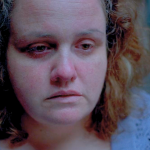
Loneliness and isolation has become an “epidemic” that is not only leaving us feeling like shit, but hurting our bodies too.
The COVID-19 lockdowns we’ve endured in the pandemic have taught us how hard loneliness can be — and how important human connection and a sense of community are for our wellbeing.
But fast forward to 2023, and Australians are suffering from an “epidemic” of loneliness and isolation that’s actually destroying our health.
Dr Michelle Lim studies loneliness and spoke to ABC News about it. She described the feeling as a “signal” that tells us we need something (in this case, connection).
“So you can use the word in a way that’s very similar to feeling hungry and feeling thirsty – it’s a sign you need something more,” she said.
“When we try to ignore the feeling of loneliness and stay disconnected, there’s robust scientific evidence that it’s extremely detrimental to our health and wellbeing.”
According to the ABC, studies have shown that loneliness can increase risk of death by 26 per cent. It can be as deadly as smoking half a pack of cigarettes every day.
Loneliness can be linked to increased risks of heart disease, high blood pressure, dementia and mental health conditions like depression and anxiety.
It’s part of the reason homelessness (which is also on the rise) is linked to so many mental and physical illnesses — the trauma of such an event, and the isolation that comes with it, is debilitating.
Of course, there are also social factors that can affect how hurtful loneliness is — you’re more likely to make healthier decisions when you have a community or people who care about you and are supportive of your wellbeing.
Lately, it seems loneliness is increasing among Australians.
Dr Ferdi Botha from the University of Melbourne co-authors a yearly study that looks into trends, including social contact.
He told ABC News that since 2001, he’s seen a “definite decline” in the frequency people are experiencing social contact, which obvs worsened during the pandemic.
“The biggest change has been among young people aged 15 to 24, who are also reporting the highest rates of loneliness,” he said.
He said that while loneliness is often a normal part of life, what isn’t is not trying to fix it by reaching out.
So, what has caused this increase in loneliness?
According to the ABC, there’s no straight answer, but key factors are social media, a shitty work-life balance and the cost of living crisis.
“The number of close friends that Australians have has approximately halved since the mid 1980s, as has the number of neighbours who we know well enough to drop in on uninvited,” Federal Assistant Minister for Charities Andrew Leigh told ABC News.
“Technology is pushing us apart, a larger portion of Australians work, and we are tending to work longer hours.”
We live in a time where people are expected to work longer hours, or have to in order to make ends meet. People either don’t have time to join volunteer groups or church groups, or they’ve become alienated by the very idea of joining them.
When you’re so caught up getting food on the table, it’s hard to have time to join a community. And when you finally do get free time (for most of us, that’s only two days of the week), you might spend your time catching up on laundry or visiting your mum. There’s certainly a feeling of always being busy.
Pair that with an increase of social anxiety post-pandemic, and in increasingly individualistic society, and, well, it’s probably no surprise we’re struggling as much as we are.
But that doesn’t mean we’re doomed — now that we know that loneliness is a problem, it’s a lot easier to tackle.
For one thing, all this information has inspired me to actually make plans this weekend, instead of rotting on my couch. If there’s a friend you haven’t seen in a while, now is a good time to him them up!



